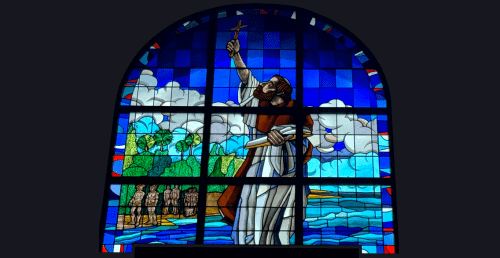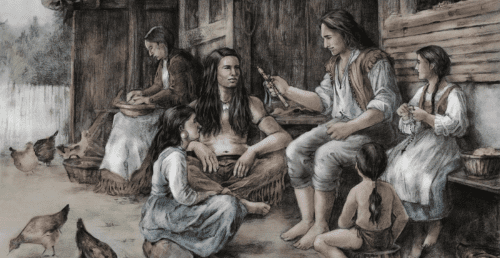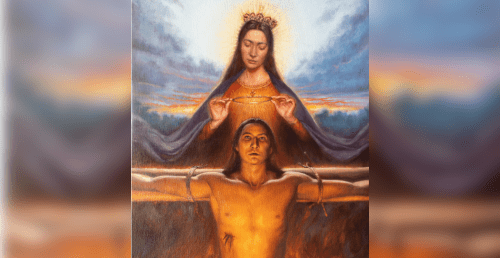


Courageous Faith: The Martyrs of La Florida Are on the Path to Sainthood
A group of laity and clergy are seeking to establish martyrdom for 58 men, women, and children who were killed because of their Catholic faith in La Florida between 1549 and 1712. The martyrs come from four states (Florida, Alabama, Georgia, and Virginia) that were originally part of the Spanish Province of La Florida. These holy men and women help us to live our faith today. Pray for their intercession and learn about their faith and courage.
The Vatican’s Dicastery for the Causes of Saints is now examining the evidence presented for these 58 individuals, considered heroes of the Catholic faith. If their heroic virtue and sacrifice are officially recognized by Pope Leo XIV, they will be given the title Blessed. This is one step away from being named a saint.
Clergy of the Diocese of Saint Petersburg are leaders in the Cause for Canonization of the Martyrs of La Florida.
Bishop Gregory Parkes started the process of formal approval for the Martyrs of La Florida in 2015 while he was serving for the Diocese of Pensacola-Tallahassee. He approved the petition to open the Cause for Canonization.
Father Len Plazewski, a Tampa historian, is a Vice-Postulator or promoter of the Cause for Canonization. He and the other Vice-Postulators are responsible for raising awareness about this Cause as well providing information, witnesses, and other experts to the Tribunal investigating the cause.
Father Joseph Waters was the official Notary for the Diocesan Phase of the Cause. He was an impartial witness who signed all the documents that were presented to the Vatican’s Dicastery for the Causes of Saints to prove that the candidates lived the Catholic faith and died for their Catholic faith. Through his signature, he verified the truth and legality of the materials compiled to support the Cause.
Who are the martyrs?
Antonio Inija is the lead martyr.
Antonio is being promoted as the name most associated with this cause; all others will be recognized as “companions.” He was a Native American who born and raised Catholic in a largeApalachee mission in present day Tallahassee. He was an extraordinary leader, husband, and father who had a strong devotion to the Eucharist and to the Blessed Virgin Mary. He was killed in 1704 by British forces and their Creek allies, who had a hatred of the Catholic faith. Antoniocould have escaped death by renouncing his Catholic faith, however, he refused to do so. He endured brutal violence and death on a cross. Witnesses report that he preached the Gospel from the cross and he had a vision of the Blessed Mother as he was dying that helped him to endure his painful martyrdom.
Father Luis Cancer was martyred in Pinellas County along with two other Dominicans.
He was a native of Spain who entered the Dominican Order and was inspired to come to the New World to spread Christianity. He believed that aggression and violence were counter-productive to the spread of the Gospel and that the native peoples needed to be treated with dignity. Father Luis de Cancer, a remarkable man of peace and Gospel virtue, was martyred on June 26, 1549,by indigenous people in the Safety Harbor area about a month after he arrived in Tampa Bay. He died seeking to bring the Gospel to the native population in our area. Two other Dominicanswho were part of the expedition, Father Diego de Tolosa and Brother Fuentes, also perished at the hands of the local Tocobaga tribe.
In honor of his heroic virtue, in 1998 the Diocese of Saint Petersburg established the Fr. Luis de Cancer Distinguished Priestly Service Award. This award is given annually to a priest serving in the Diocese of St. Petersburg who best exemplifies selfless and dedicated service to the people of God. To view the list of award recipients, click here.
Message from Bishop Parkes
“It’s important to look to the Martyrs of La Florida as examples of how to courageously live the Gospel in the times and circumstances of today and to share their story and their example of heroic faith, particularly with our young people, to inspire them to greater faith.” – BishopGregory Parkes

